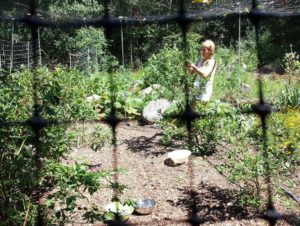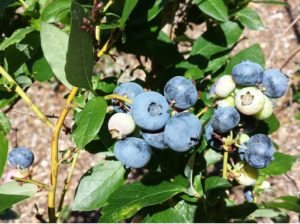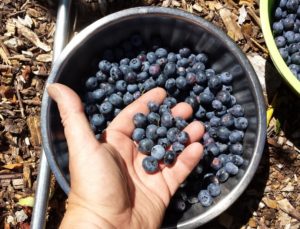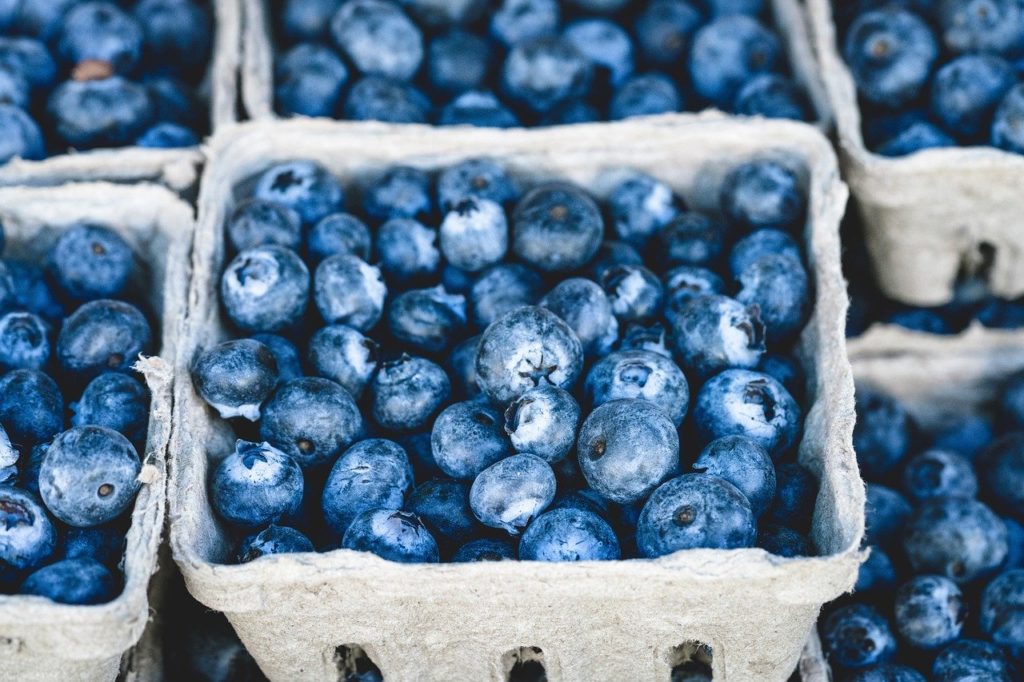Where can you find a winter-hardy shrub that thrives in Yarmouth’s sandy soil; turns brilliant red in autumn; provides food for native songbirds; and fills the freezer with antioxidant-rich power food?
When bush comes to shrub, it’s hard to beat the humble blueberry.

Now that the spring gardening season has arrived on Cape Cod, it’s time to plant trees and shrubs, as well as vegetables and flowering plants. It’s also the best time to plant high-bush blueberries, allowing a full growing season during their first year in the landscape.
A lot of people are really looking to grow their own foods today, said Rose Grevelis, senior nursery associate at Agway of Cape Cod in South Dennis. Blueberries fit perfectly into that plan.
As they mature, high-bush blueberries provide an attractive border or screen for objects in the home landscape. And when bushes mature, they reward growers with a harvest of sweet-tart berries. Unlike evergreens, blueberries do lose their leaves in winter, but before that happens, the foliage turns a brilliant crimson.
Agway sells an assortment of blueberry bushes, Grevelis said, starting with one-gallon potted plants that will take about three years to begin producing a respectable harvest. To ensure their health and future productivity, she advises the following steps:

- Choose several blueberry varieties for good pollination and berry production. If you have the space, grow two or more varieties of early, mid-season and late-fruiting blueberries. That way you can stretch your berry-picking time from late June through mid-September. Earliblue, Ivanhoe, Patriot and Blue Ray are early varieties; Berkeley, Bluecrop, Pioneer and Atlantic are mid-season varieties; and Jersey, Coville, Lateblue and Elliot are late-fruiting choices. Jersey is an especially popular choice for Cape Cod growers, Grevelis said.
- Test your soil’s pH before planting. Blueberries love acidic soil – even more acidic than the natural conditions on Cape Cod. Chances are you’ll need to add some sulfur to raise the soil’s acidity (lowering the pH to between 4.1 and 5.0 on a scale where 7.0 is neutral). Don’t know how to test your soil’s pH? No worries. Agway of Cape Cod offers free pH testing.
- Blueberries will tolerate some shade, but they grow strongest and provide the most fruit when grown in full sun (at least six hours per day).
- Blueberries love water, but don’t perform well when their roots are soggy, so plant them in well-draining soil. That’s an easy task when you live on Cape Cod, where the sandy soil drains almost instantly. To retain some water and nutrients, dig your hole the same depth as the pot, but double or triple its width. Then add plenty of organic compost and mix it into the surrounding soil.

- Space blueberry bushes at least 4-5 feet apart. This will allow stronger root growth as well as good air circulation, which helps prevent diseases. It will also leave you ample space to pick the berries once bushes mature.
- One pest that sometimes attacks Cape Cod blueberry bushes is the winter moth, which varies in population from year to year. If you see a lot of beige, night-flying moths on warm nights between Thanksgiving and Christmas, chances are the tiny larvae will eat the blossoms and leaf-buds of your blueberry bushes come spring. Solution: Spray the bare branches, twigs and bark with a dormant oil in late winter. It will smother the eggs.
- To protect your blueberry crop from catbirds, robins and other feathered friends, cover the bushes with netting. A tall cage made from lightweight deer fencing with steel electrical conduit for posts is a low-cost option. Drape plastic bird netting over the top during fruiting season and remove the top in winter.
Agway of Cape Cod will be one of the garden and landscaping companies participating in the spring Home, Garden and Lifestyle Show, set for May 16-17 at the Barnstable High School field house. Find more information on the show at the Hyannis Rotary Club website.
(Yarmouth Chamber of Commerce blogger Andy Tomolonis is a multimedia producer, award-winning journalist and author of Organic Hobby Farming: A Practical Guide to Earth-Friendly Farming in Any Space.)

